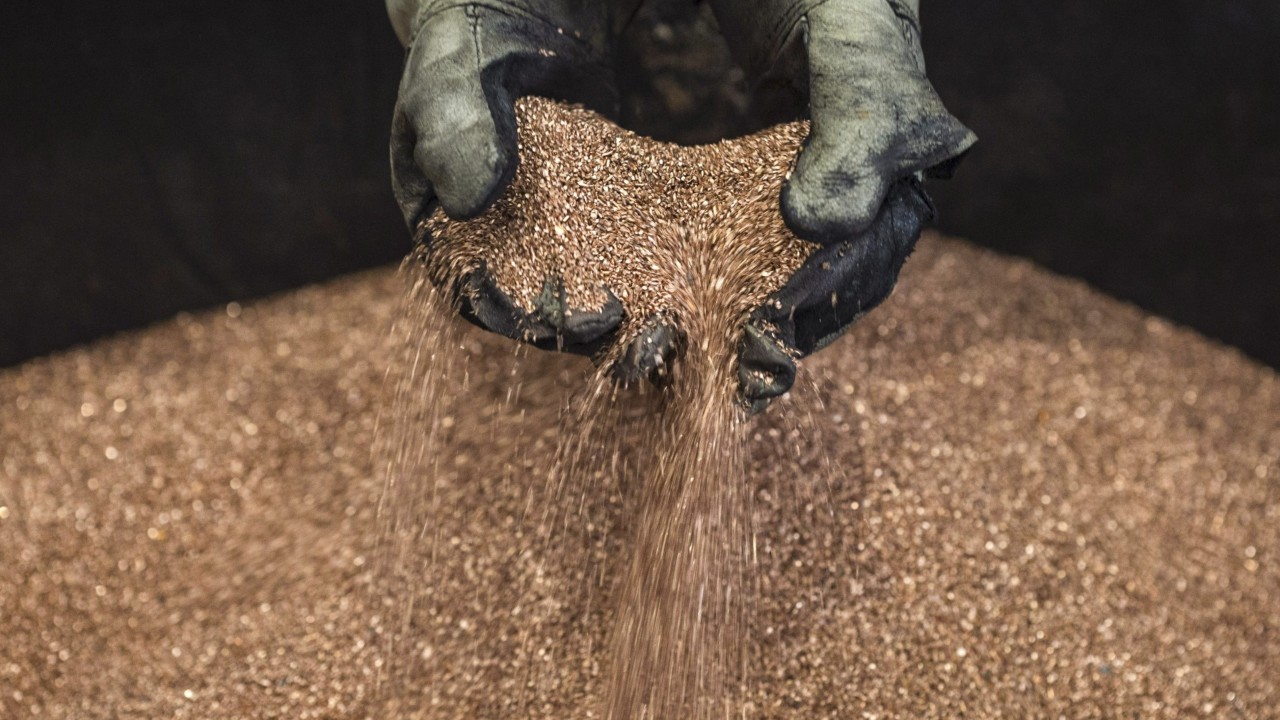
Pong’s concerns were delivered to policymakers, business leaders and investors attending the opening of the two-day conference organised by the think tank branch of Saudi Arabia’s sovereign wealth fund – Public Investment Fund – which manages more than US$700 billion in assets.
Supply chains headline China-Vietnam talks as US vies for influence
Supply chains headline China-Vietnam talks as US vies for influence
The conference, themed “Megatrends Shaping Humanity”, was held in partnership with the Hong Kong government and Hong Kong Exchanges and Clearing, the city’s stock-exchange operator.
Against the backdrop of an increasingly competitive relationship between China and the United States, Western countries have been trying to catch up with China’s global domination in the industries of electric batteries and clean-energy technology.
And in response to global calls for a clean-energy transition, governments are putting more emphasis on securing the supply chain of critical materials – including rare earths, cobalt, nickel and copper – that are essential in hi-tech production, from solar panels to semiconductors.
Pong said China has shored up its competitive position in the production of such materials because it began planning earlier than the West as the world shifted toward cleaner sources of energy.
China planned for this and has invested largely in these countries with huge [copper] resources
“In America and Europe, if they decide to massively increase their local electric-vehicle market and industry, for example, they would need to build many more electric grids”, which would require massive quantities of copper, Pong told the Post.
“So, when America and Europe are trying to expand their local EV production [and develop] the needed infrastructure, it will cause a rush, and there will be a global shortage of necessary materials,” Pong added.
Pong noted that China has scarce copper sources – largely confined to just Yunnan and Jiangxi provinces – and has been reliant on imports from Latin America, including Chile and Peru, along with Kazakhstan, Mongolia and Central Africa.
“But these countries are friendly with China, and China has been working on these trade relationships,” Pong said. “Every country needs copper, and it has been in limited supply for the past few years.
“China planned for this and has invested largely in these countries with huge resources of copper mines.”
China’s top spy agency vows to safeguard critical minerals amid global race
China’s top spy agency vows to safeguard critical minerals amid global race
“The West has overlooked their manufacturing sectors in the past few decades, while China has planned for strategically securing these materials on a national level, ” he said.
Pong noted that the US has resumed mining and refining operations in what used to be the world’s biggest rare-earth-processing facility, in Mountain Pass, California. But he said the operational costs there will be at least 50 per cent higher than production in China.
“So, if the US is willing to pay such a price because of geopolitics, instead of prioritising economic considerations, of course they can still produce it,” Pong said. “But the impact on the market and consumers would be huge.”
The resumption of production at Mountain Pass in 2018 is in line with Washington’s calls for diversification and risk mitigation within supply chains, and it’s considered part of a calculated effort to assert control over the realm of these critical minerals.
China has also made moves to protect its critical materials, such as by imposing stricter export controls on graphite, a critical EV battery material, since December 1.

